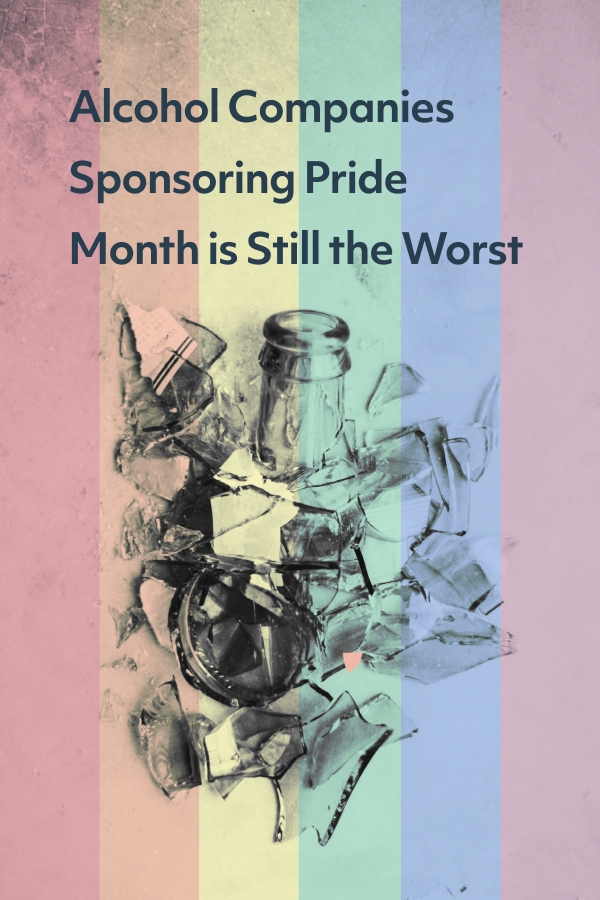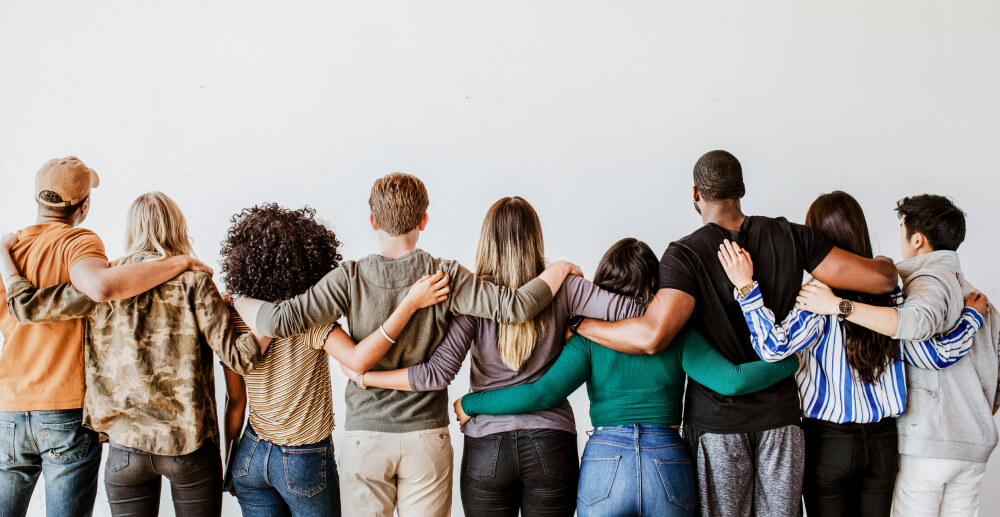You would think with what we know about the LGBTQ+ community and its toxic relationship with alcohol that we still wouldn’t have to talk about liquor companies sponsoring Pride.
Alcohol is a huge part of Pride marketing
Tents filled with beer and floats sponsored by Stoli vodka feel a little outdated in this day and age. As the community is widely considered to be at risk to develop substance use disorders, a booze brand sponsoring Pride feels like a high school dance being sponsored by a gun manufacturer. You would think that and you would be wrong. The doomed marriage between alcohol and Pride rages on, common sense be damned. Alcohol makers line the shelves with bottles of rainbow liquor and cases of Gay Beer. Check out your grocery store’s wine aisle this month and I guarantee you will spot at least one bottle decorated for Pride.
Absolut, a longtime pusher to the gay community, once again packaged its rainbow bottles under the guise and pomp that they are allies to the community. According to GLAAD’s chief program officer Zeke Stokes, “Absolut’s commitment to celebrating the LGBTQ community all year long, and not only during Pride month, is a shining example of how brands can bring inclusivity, diversity, and acceptance to the forefront of their mission.” These are nice words, but when said product is literally killing a group of people, they words are meaningless. If Absolut truly wanted to serve the LGBTQ+ community, donating profits towards culturally specific treatment centers would mean a hell of a lot more than selling cheap rainbow-colored bottles. Just saying.
Why does this make me upset?
Is marketing alcohol to LGBTQ+ really all that bad? In a word, yes.
I came out in an era where you came out in bars. These were safe spaces, but were also where places people like me who loved to party could find any and everything they wanted with relative ease. The gay culture in the 90s involved meeting people while drinking or using drugs. It’s who we were. We didn’t recognize that many of us, myself included, were drawn to drugs and alcohol to help self-soothe our various traumas, many of which were caused by being queer. Dozens of statistics show that queer individuals are twice as likely as their straight counterparts to develop substance use disorders. I know that in my own life, the societal weight I carried as a gay man, the discrimination, the internal hatred because of my sexual orientation mixed with a family tree filled with addicts and alcoholics … all of these combined to make me the perfect target for this kind of marketing.
In my early twenties in the 1990s I moved to Los Angeles. Brands like Budweiser, Coors, and Absolute were already marching in Pride parades and setting up booths at gay festivals. At the time, these brands were being bold. After all, Ellen had just come out and Will & Grace was on TV. Being gay was becoming more acceptable. It seemed like it was finally time for all of America to get on board with the LGBT community.
As a young regular of bars and nightclubs, it seemed cool and progressive to me that brands would laugh in the face of heteronormativity. They were selling their products directly to me and my friends. These brands weren’t like my parent’s brands! They were down with the cause and supported us. But as it turns out, that wasn’t cool at all.
These huge companies launched campaigns targeted to me and my friends for the same reasons they put billboards for malt liquor in black communities or marketed cigarettes in Spanish in Latino neighborhoods: because they knew their customers. Companies like Coors and Smirnoff spend millions on demographics research to figure who’s buying what so they can push even harder to those folks. Once they figured out that my people were spending lots of money on booze, they heavily invested in finding ways to make us spend even more. What’s beyond messed up about this is that we know better now. We know the rate of addiction with queer people is out of control. We know that LGBTQ+ face more mental health conditions than their straight counterparts. We have the receipts of years of data that shows this isn’t solidarity or support. It’s simply about money made by exploiting people who are struggling the most. Yet they continue to do it anyway.
Before it was a party, Pride was a riot
Pushing aside the bottles and shot glasses decked out in rainbow colors, it’s important to remember that Pride celebrates the Stonewall Riots. These were the first move toward gay rights in this country and started by queer and trans people of color. This movement wasn’t about being a product; it was about being people. It was about being treated fairly like everyone else. Our rights are constantly threatened even today, and we don’t need stuff marketed to us. We need help. If a company really wants to support gay, lesbian, bisexual, asexual, trans and queer people, it will take more than selling merchandise. What my community deserves is access to a culturally specific treatment, free mental healthcare, and comprehensive campaigns that don’t sell vodka, but sell the idea of recovery while smashing the stigma.
Now, that would be something to really be proud of.










